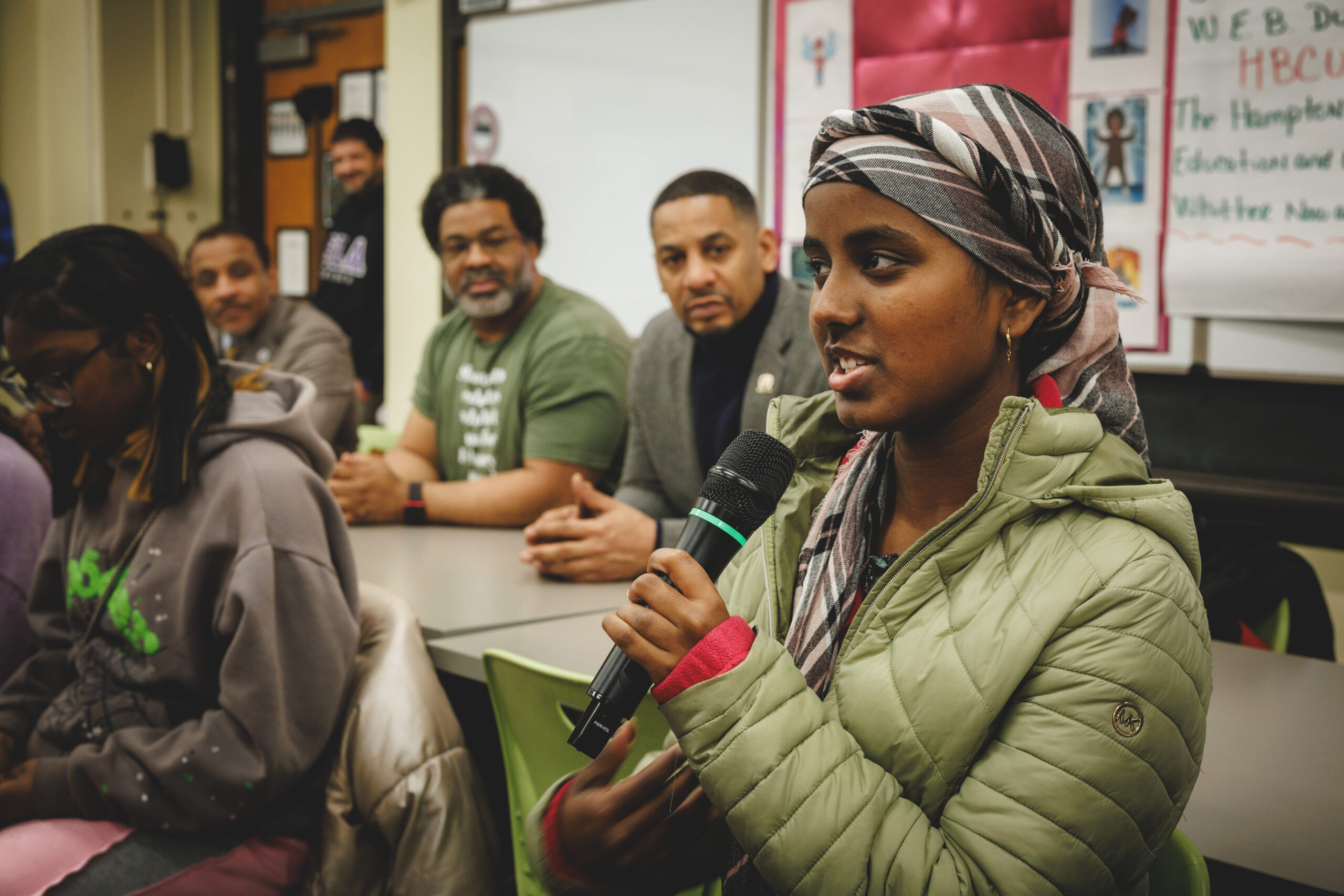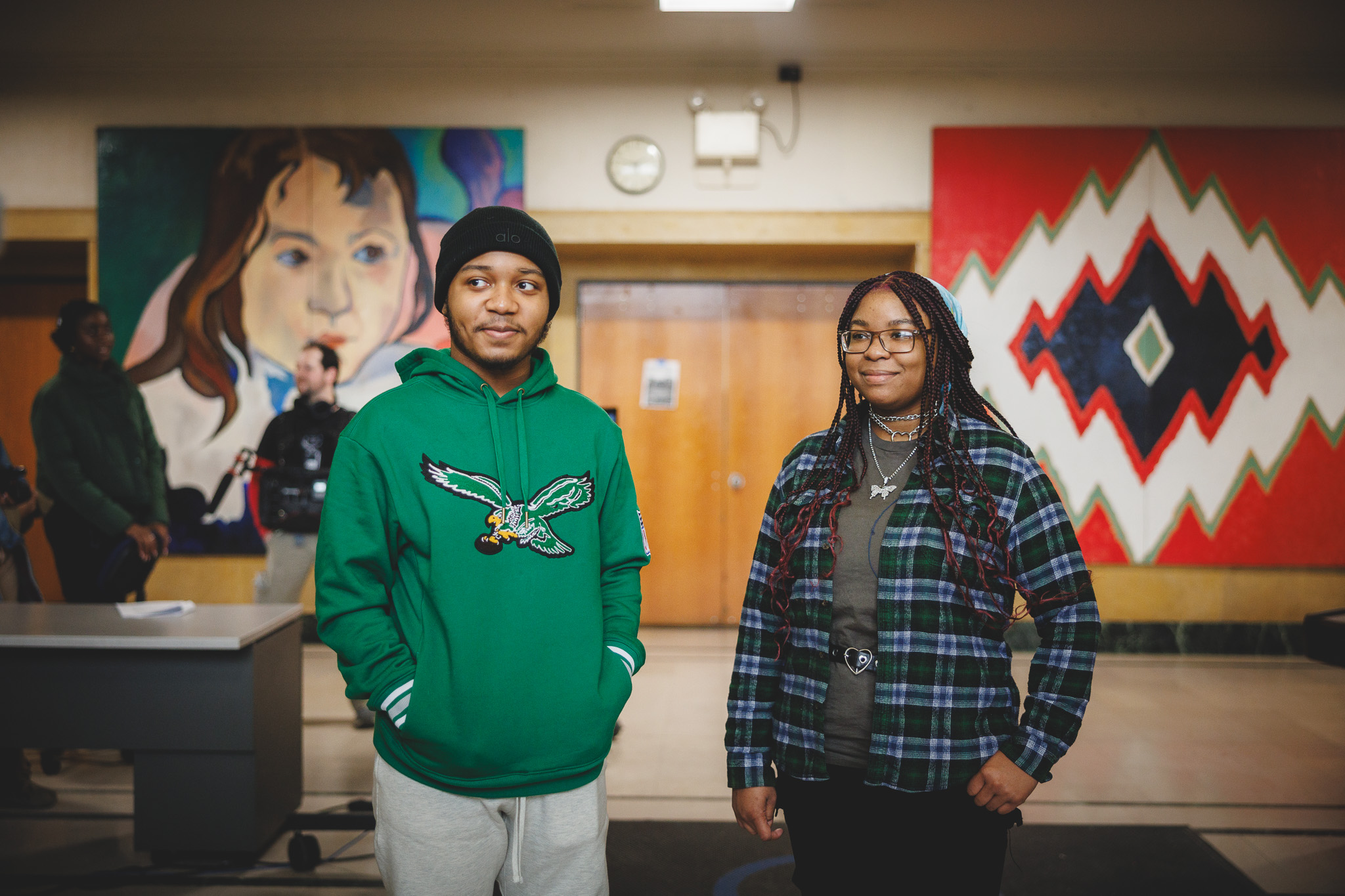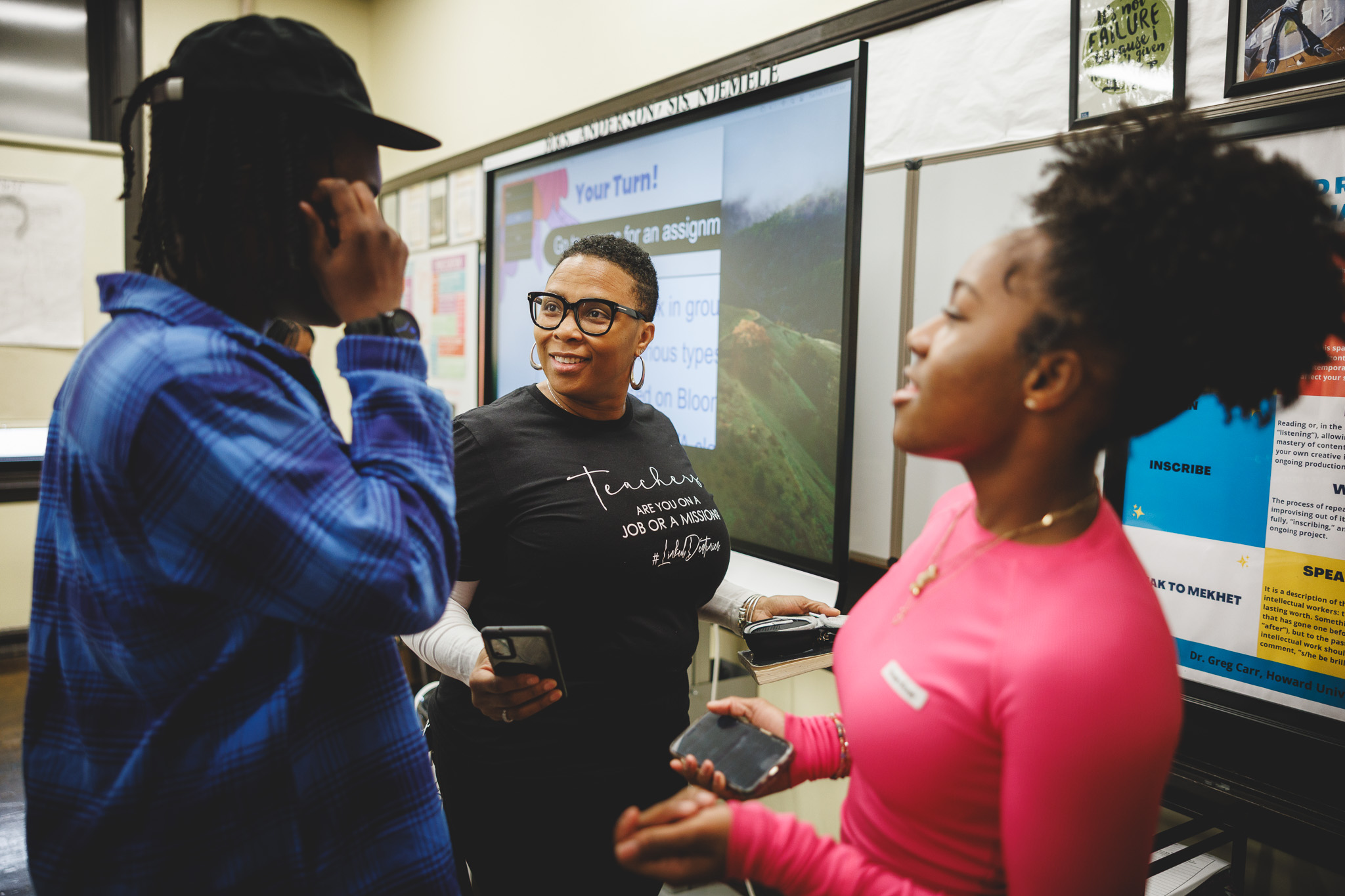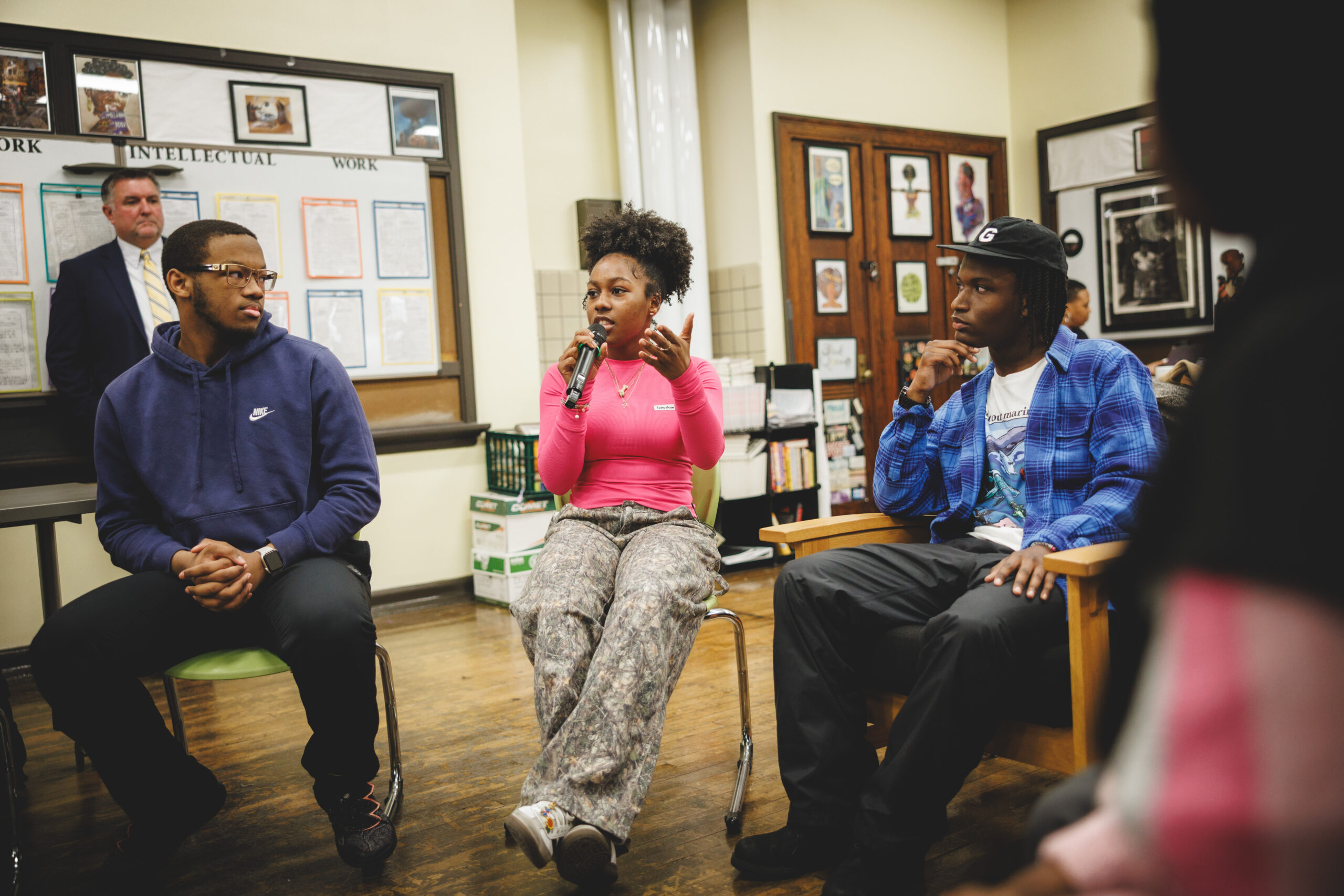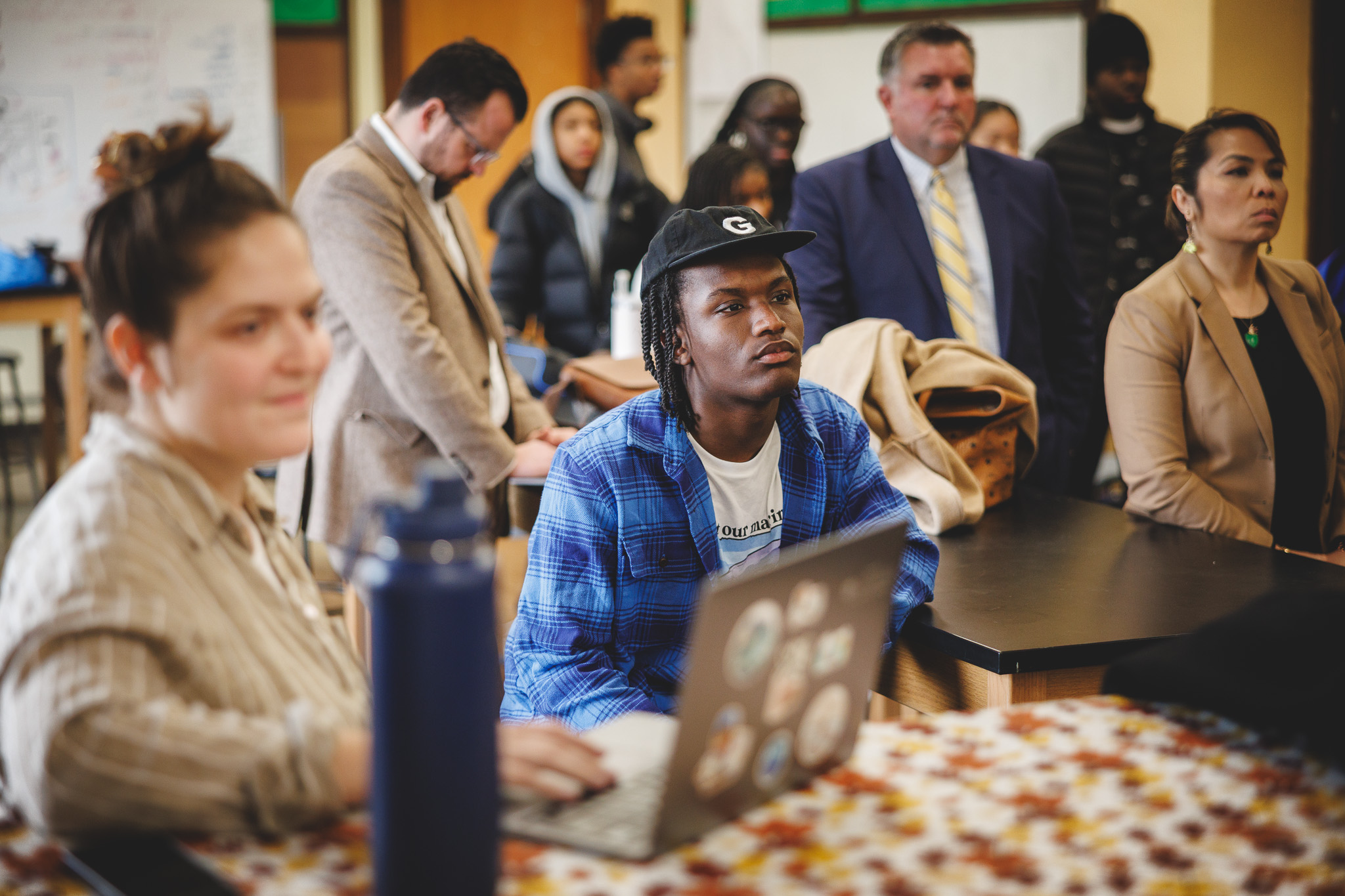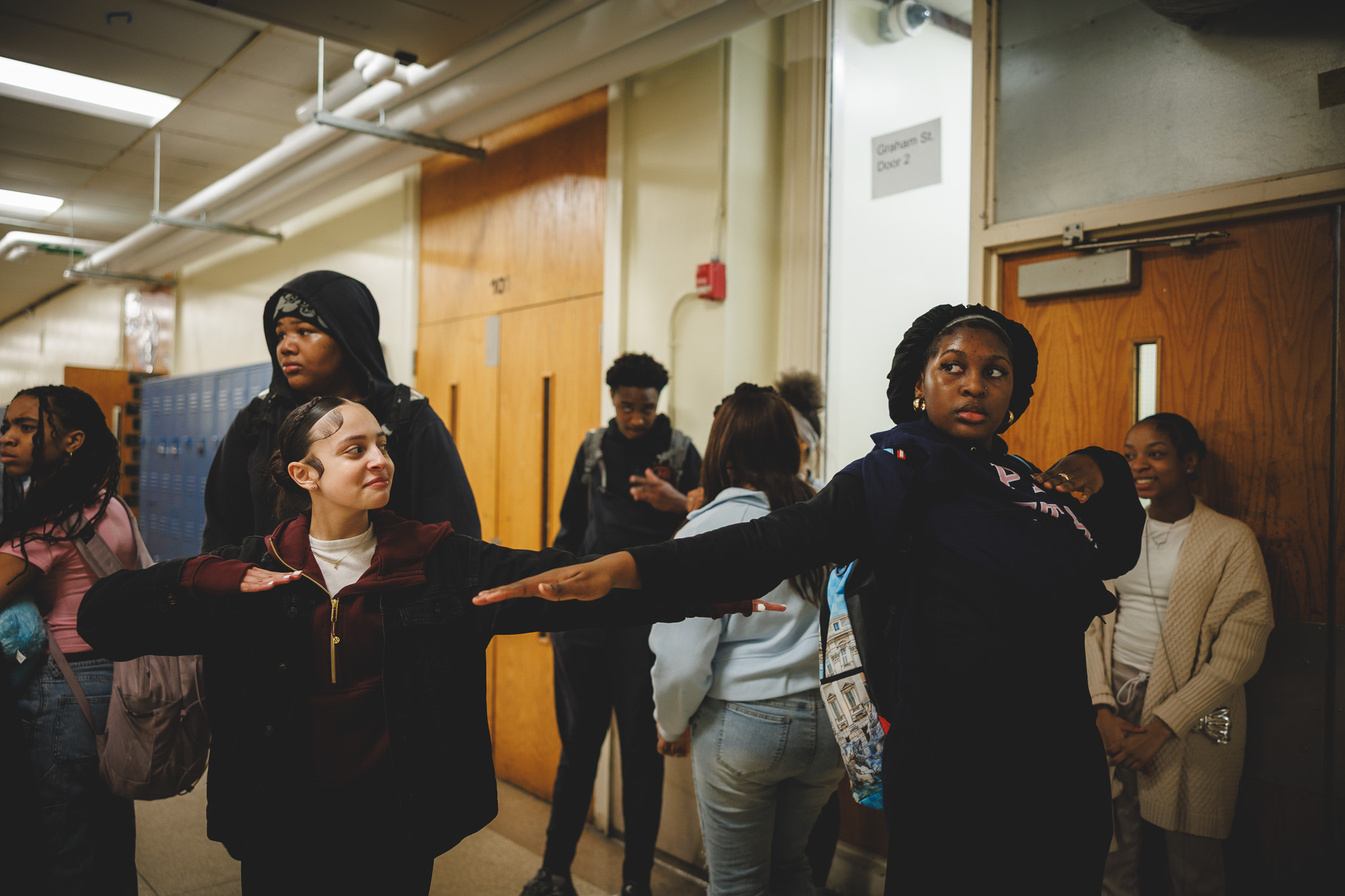TEACHING ACADEMY
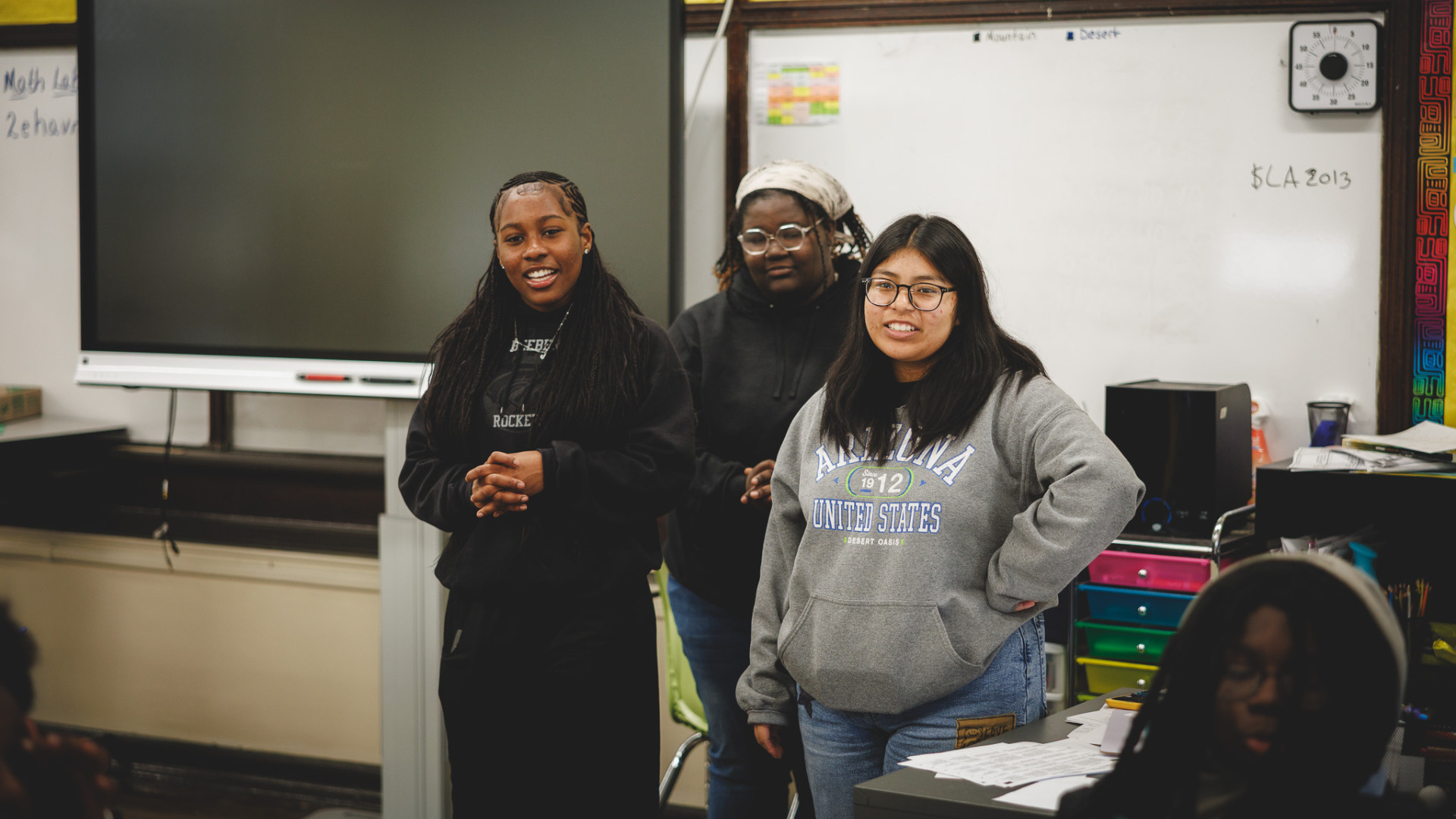
THERE IS NO SOCIAL JUSTICE WITHOUT EDUCATIONAL JUSTICE.
The Teaching Academy is a year-round high school Career & Technical Education (CTE) course for students interested in teaching. Our LeCount-Catto Curriculum, which is based in Black pedagogy and historical frameworks, helps students make the connection between teaching and activism.
Teaching Academy is centered around a mentorship model that provides high school students with a full semester of targeted instructional coaching and professional development designed to prepare them to serve as teaching assistants and instructors in mentor classrooms.
The Center partners with higher education institutions to provide college credits through dual enrollment so that students can graduate high school with an associate’s degree in education and certification as an educational paraprofessional. The Center also assists schools with implementing the dual enrollment programming by providing guidance on course content and equivalency.
All Teaching Academy students are eligible for the Center’s Future Teacher of Excellence Fellowship that provides academic support, professional coaching, college scholarships and retention bonuses.
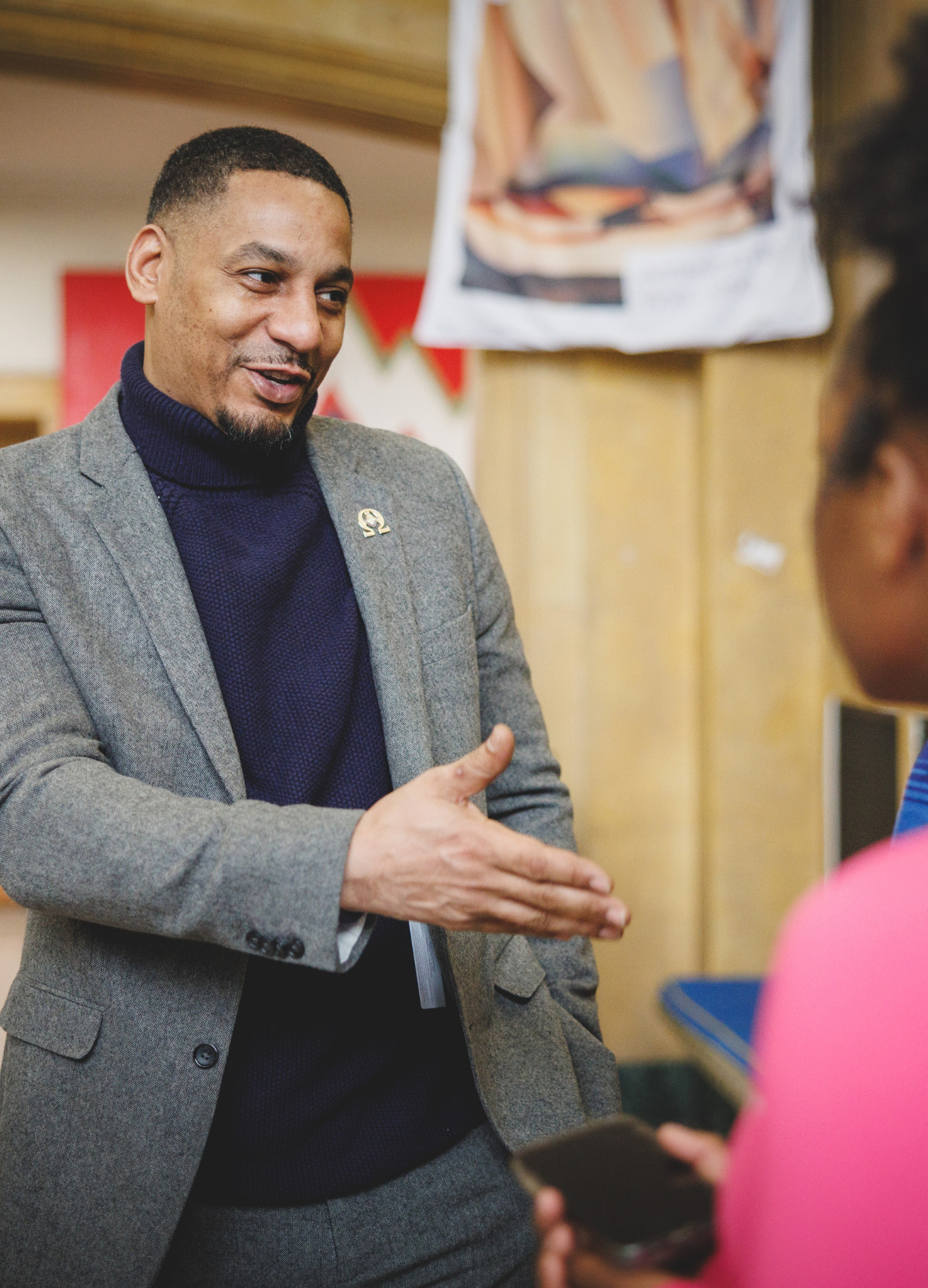
SCHOOL AND DISTRICT LEADERS
The Center’s Teaching Academy is designed to attract, cultivate, and support future education professionals who are dedicated to intellectual development, committed to social change, civically aware, and conscious of their role as servant leaders.
The Teaching Academy curriculum will provide high school students with:
- An intellectually rigorous, collaborative environment designed to foster a love for acquiring and sharing knowledge
- Opportunities for personal and professional character development
- A strong foundation for pursuing long-term careers in education
Create opportunities for your high school students to explore, examine and practice their own pedagogical approaches through rigorous scholarship and collaboration.
CONTACT US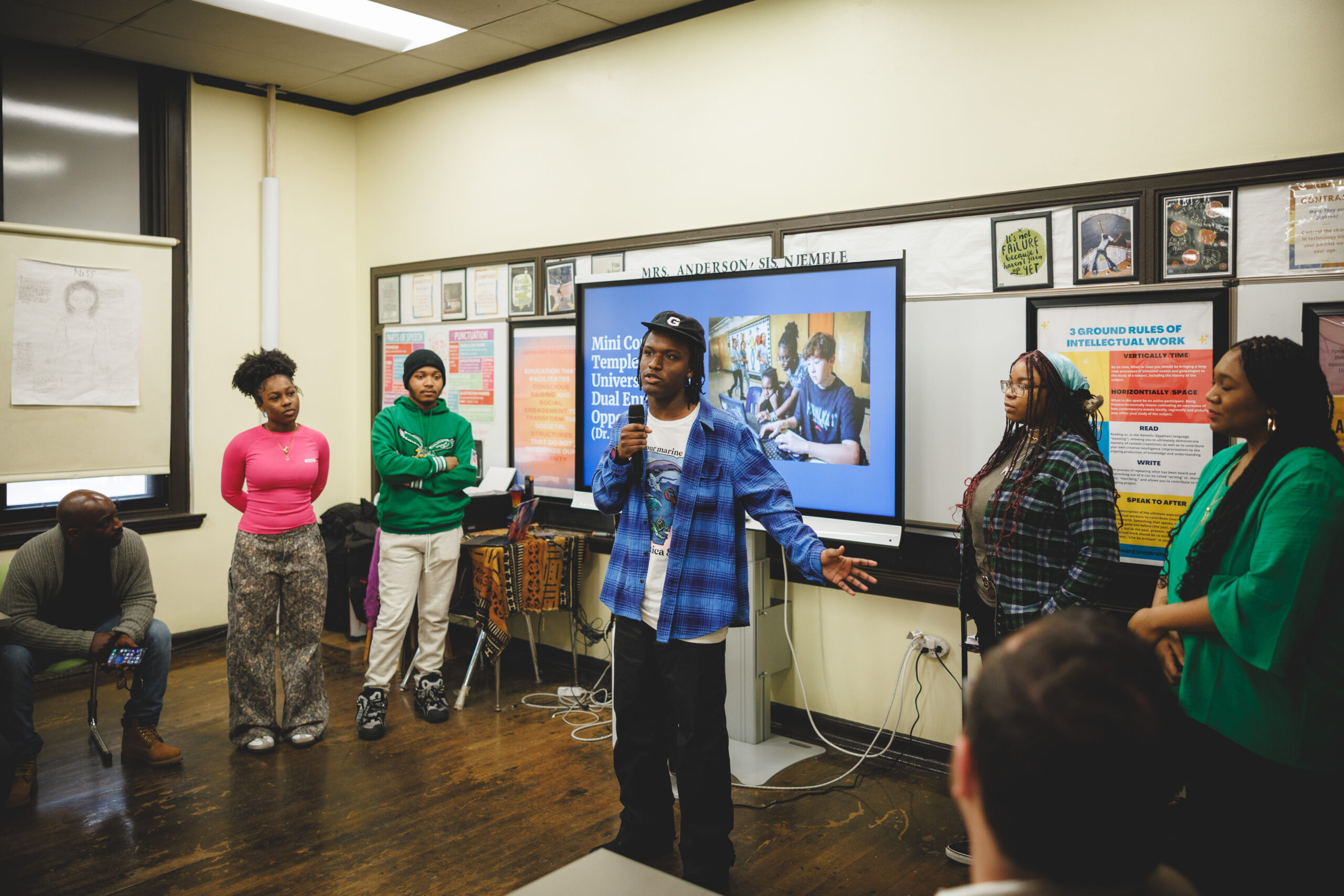
edWeb—a leading online publication for senior administrators and education professionals—hosted a recent conversation on our Teaching Academy, featuring Ansharaye Hines, our Assistant Director of CTE and Curriculum, Dr. AB Spence, Program Manager and Jahmere Jackson, Future Teacher of Excellence Fellow.
Watch the recording, listen to the podcast and read the article on edWeb.
During our pilot of the Teaching Academy program during the 2021-22 school year, students demonstrated encouraging signs:
- 160 high school students enrolled in one semester across FOUR sites in THREE states (Pennsylvania, New Jersey and Michigan).
- 35% rate of increase in teaching.
- 94% interested in attending college.
- 12 statistically significant outcomes across each of the five targeted growth categories.
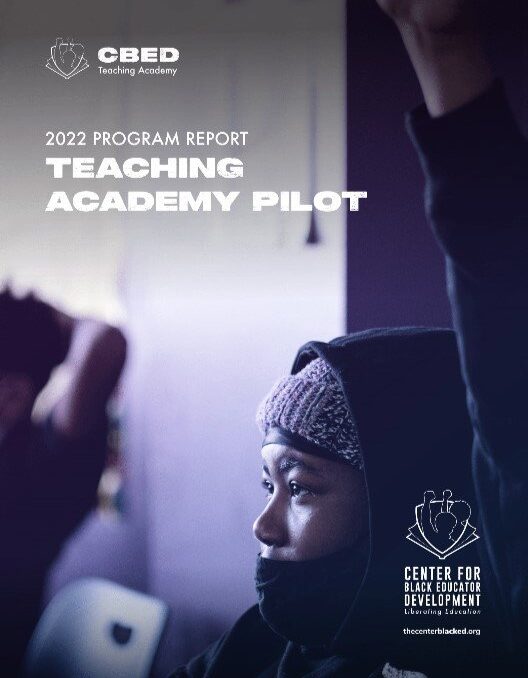
THE EDUCATIONAL JUSTICE MODEL OF THE TEACHING ACADEMY
A LIBERATING EDUCATION PHILOSOPHY
- Accepting only progress towards excellence, not norms stigmatizing marginalized children as perpetually behind.
- Cultivating a sense of self within a rich genealogy of Black leaders and innovators.
- Building a reverence for learning through rigorous content, educational structures and a supportive communal environment.
THE BLACK EXPERIENCE, FRONT AND CENTER
- Pedagogical explorations, ideological frameworks and documented practice of educational thinkers and writers throughout the African diaspora.
- The language, philosophy and theories which helped people of African descent organize their educational systems, while adapting or learning from these systems to improve and enrich our current reality.
- Literature and programming that values and explores the cultural experiences and the intellectual inheritance of participants while exposing them to the larger world as conscious change agents.
THE PRACTICE OF COMMUNAL LEARNING
- Learning centered in partnership and collective success.
- Shared growth over individual advancement.
- Fostering a sense of community with a true investment in the well-being of each other and a supportive learning environment.
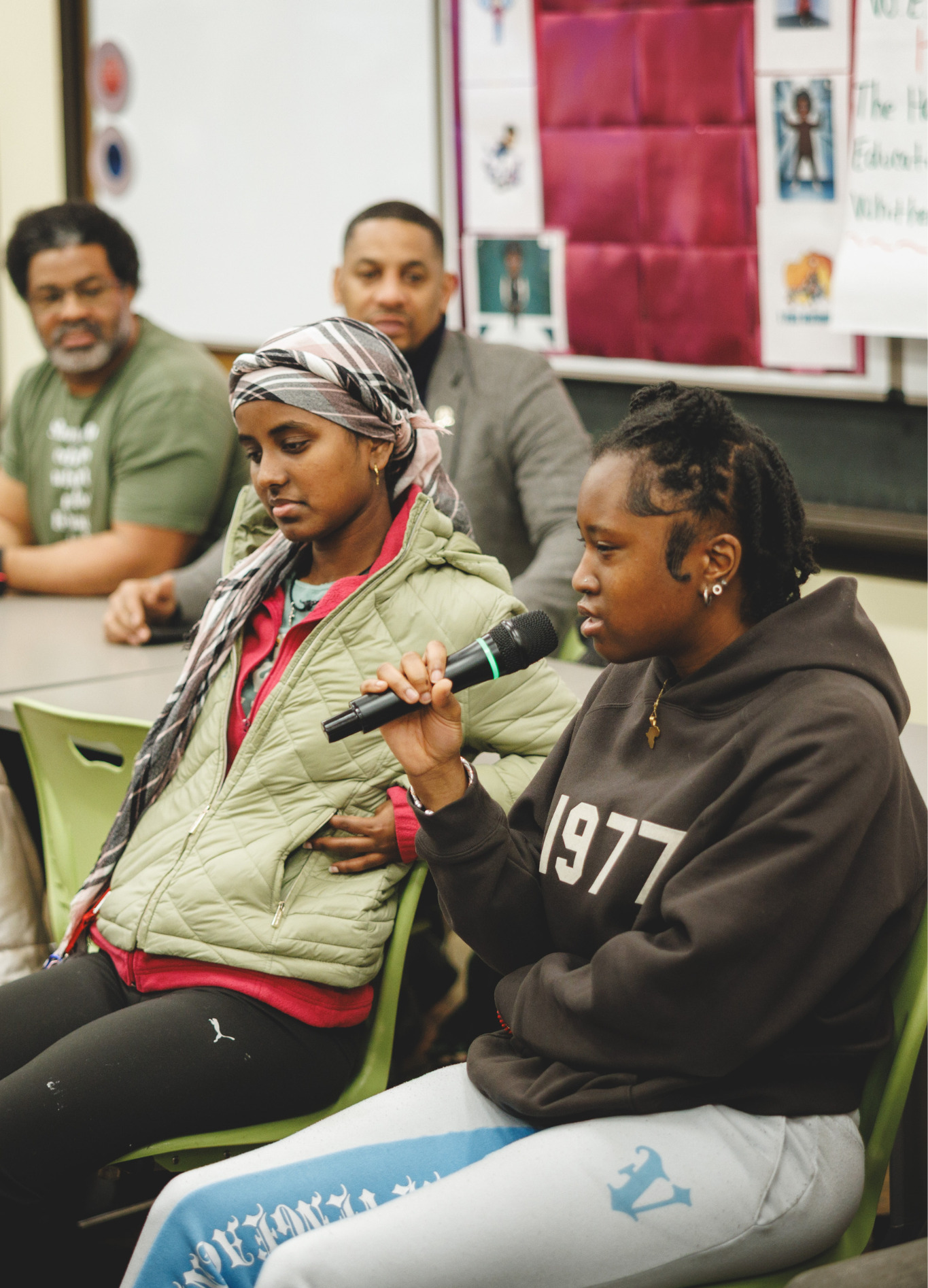

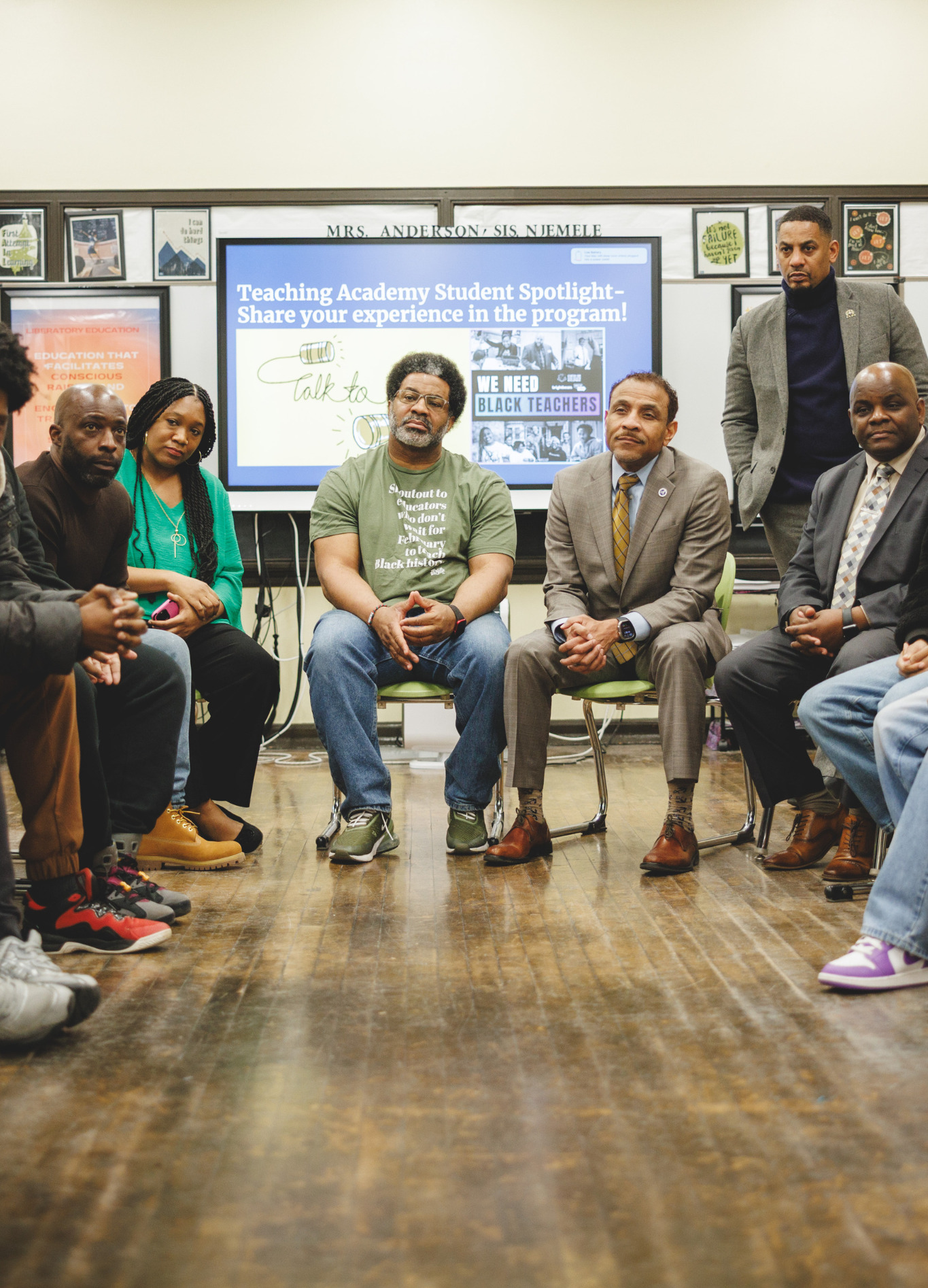
OUR REACH & IMPACT

SIGNIFICANT OUTCOMES
TARGETED GROWTH AREAS
Freshmen showed significant increases in:
- Interest in attending Historically Black Colleges and Universities post high school completion
- Social awareness around global citizenship and their individual and collective role as changemakers within the African Diaspora
Seniors showed significant increases in:
- Interest in educating and servicing Black students and families
- Analysis and understanding of identity politics within the education workplace
- Academic ownership and self-determination
- Social justice orientation
